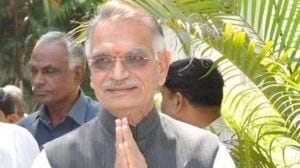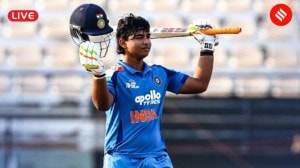India has administered the Covid-19 vaccine to close to 8 million beneficiaries in the first 28 days. From Saturday, the country began administering the second dose of the Covid-19 vaccine to the priority group of healthcare workers.

The majority of vaccines in clinical use require a two-dose schedule to be administered two, three or four weeks apart. They are being administered through the intramuscular route. In India, both Serum Institute’s Covishield and Bharat Biotech’s Covaxin have the same course and schedule: two doses schedule, four weeks apart.
The Covid-19 vaccine rollout started 28 days ago, and the two lakh beneficiaries who were given the first shot on Day 1 will be administered with the second dose.
Will the second dose be administered to every beneficiary on the 28th day?
No, there is no such mandatory requirement. The second dose can be given anytime between four and six weeks after the first shot.
Which all states and UTs have started the second dose on Saturday?
At least four states have planned sessions to administer the second dose beginning Saturday. These include Delhi, Gujarat, Himachal Pradesh, and Jammu & Kashmir.
Story continues below this ad
Why is it important to get the second dose?
According to the Centre’s guidelines, the protective levels of antibodies are generally developed two weeks after receiving the second dose of COVID-19 vaccine. In fact, Prime Minister Narendra Modi, while rolling out the vaccination drive, had urged the beneficiaries to mandatorily complete the two-dose schedule. “You cannot take only one dose and then forget; don’t make such a mistake. And as the experts are saying, between the first and second doses, a gap of about one month will be kept. You have to remember that only two weeks after the second dose, your body will develop the necessary strength against corona,” Modi had said.
How is the second dose drive being planned?
The Co-WIN system of the Ministry of Health and Family Welfare is designed for end-to-end tracking of COVID-19 vaccines and linking every dose to individual beneficiaries. After all doses of the vaccine are administered, a QR code-based certificate will be sent to the registered mobile number of the beneficiary.
According to the Centre’s guidelines, after administering the first dose, the vaccination officer ticks the vaccination completion checkbox in the Co-WIN system and the beneficiary will receive an SMS notification with a link for date and time of subsequent dose.
Similarly, on the logistics side, the session sites are calculated in accordance with the number of beneficiaries due for vaccination under the flagship Co-WIN platform. Also, one site will administer only one type of vaccine — and every beneficiary will receive the second dose of the same vaccine.
Story continues below this ad
Which priority group is being vaccinated at present?
COVID-19 vaccine is being offered first to healthcare workers and frontline workers. For the population above 50 years of age, followed by the population below 50 years of age with associated comorbidities based on the evolving pandemic situation, the drive is likely to start in March.








































